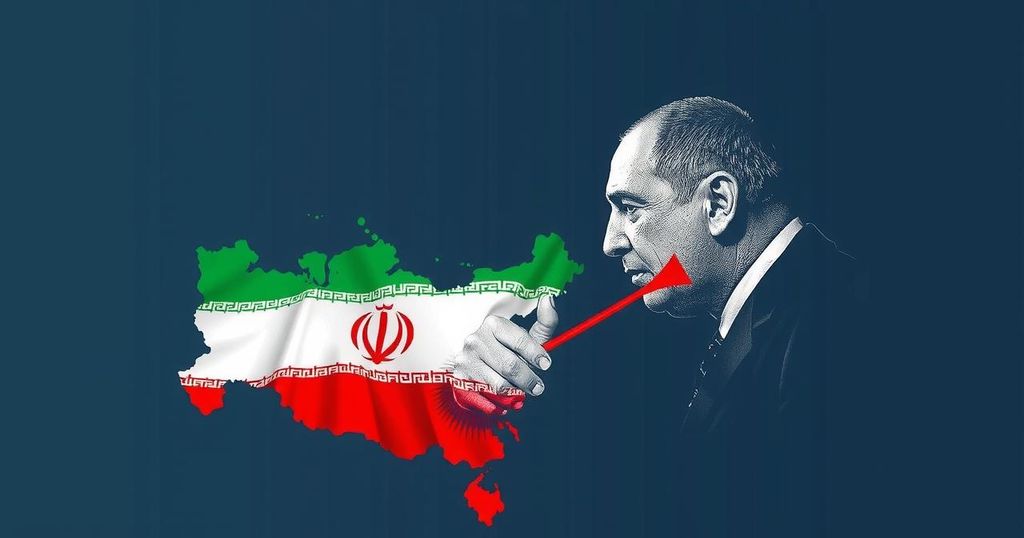The article analyzes Russia’s shifting foreign policy and its complex relations with Iran. It highlights how Russia’s interests in Syria conflict with Iran’s ambitions and suggests that recent changes may prelude a pivot away from Iran. As Russia focuses on strengthening its geopolitical position, particularly in light of the situation in Ukraine, it may use its influence over Iranian military capabilities as a bargaining tool. The narrative underscores Putin’s prioritization of flexibility and resource maximization in foreign relations.
Vladimir Putin, Russia’s President, often highlights the importance of flexibility, a principle that underpins Russia’s foreign policy maneuvers. Throughout three decades of partnership, Russia displayed indifference towards Armenia’s plight in Nagorno-Karabakh after its recent resurgence. Similarly, Russia’s relations with Israel soured after years of cordiality, while it unexpectedly strengthened its ties with Saudi Arabia. Putin has shown a capability to adapt his alliances based on changing geopolitical interests. Currently, Russia’s potential pivot away from Iran poses new questions. This transition might be driven by a desire to weaken Iranian influence in Syria and Armenia, while also leveraging its role in the Middle East to extract concessions regarding the ongoing peace negotiations surrounding Ukraine. Although Russia and Iran have cultivated closer relations recently, their mutual objectives, particularly in Syria, remain conflicting. Syria has become a focal point of their divergence, as Russia seeks a stable ally in Assad, while Iran views it as a base for operations against Israel. Russia has previously wielded control in Syrian airspace which allowed it to mediate between Iran and Israel. However, post-Ukraine invasion, Iran has tried to fill the void left by a distracted Russia. The deteriorating situation for Iran, particularly against Israeli operations in Syria, has raised questions about Russia’s stance. Moscow has yet to allow Iranian proxies greater freedom of movement in southern Syria despite Iran’s intentions. The Russian envoy to Syria recently indicated a commitment to maintaining stability. Israel, previously apprehensive due to shifting dynamics, is strategically navigating its relations, avoiding outright hostility towards Russia even as its ties with Iran grow strained. As both nations maneuver, Israel has capitalized on the interest divergence, seeking to limit arms transfers through Syria. The tensions extend beyond Syria, affecting concerns over supply chains to Iran and geopolitical alignments in the Caucasus region. Iran recognizes the complex nature of its relationship with Russia, highlighting that they are partners only in certain respects, with significant differences persisting. Furthermore, with a potential diplomatic approach from the new U.S. administration advocating for peace in Ukraine, Russia may choose to utilize its influence over Iranian weapon relocations in negotiations. Ultimately, Russia’s actions are driven by a desire for expansionism, often prioritizing its interests over longstanding alliances. In this unpredictable geopolitical landscape, there is little doubt that if it serves Russia’s strategic objectives, Putin would not hesitate to distance himself from Iran.
The article scrutinizes the evolving dynamics of Russia’s foreign policy, particularly in relation to its alliances with Iran and its maneuvering in the Middle East. It illustrates Russia’s history of shifting allegiances, emphasizing Putin’s flexible approach to national interests. The backdrop includes Russia’s significant role in the Syrian conflict, where it has been critical in maintaining control while grappling with Iran’s ambitions in the region. The discussion also incorporates broader themes of geopolitical strategy as it pertains to Russian and Iranian relations in light of changing global interactions.
In conclusion, Russia’s foreign policy is characterized by opportunism, with Putin willing to adapt alliances based on strategic interests. The relationship with Iran is increasingly tenuous, driven by competing regional goals, particularly in Syria. The tensions between the two nations illustrate a broader trend of Russia seeking to maximize its influence by evaluating its partnerships critically. Ultimately, if distancing from Iran aligns with Russia’s national interests, it will likely pursue that course, regardless of past alliances.
Original Source: www.newsweek.com







